Albania increased the cultivated areas with wheat after the onset of the war in Ukraine in an attempt to secure the supply in an uncertain situation. However, the wheat grown on Albanian lands has remained stockpiled in farmers’ homes as traders did not refrain from importing grains. Despite the war, Albania purchased tons of wheat from Serbia, Russia, and Ukraine.
Esmeralda Topi
Farmers in Albania increased the cultivated areas with wheat this year in the hope that traders would buy local wheat, to reduce dependency on imports during a time of uncertainty due to the Russian aggression in Ukraine.
Ahmet Kaloshi, a farmer from the village of Gradishtë in Divjakë, planted 500 hectares of wheat, but today, more than half of his wheat is not yet sold.
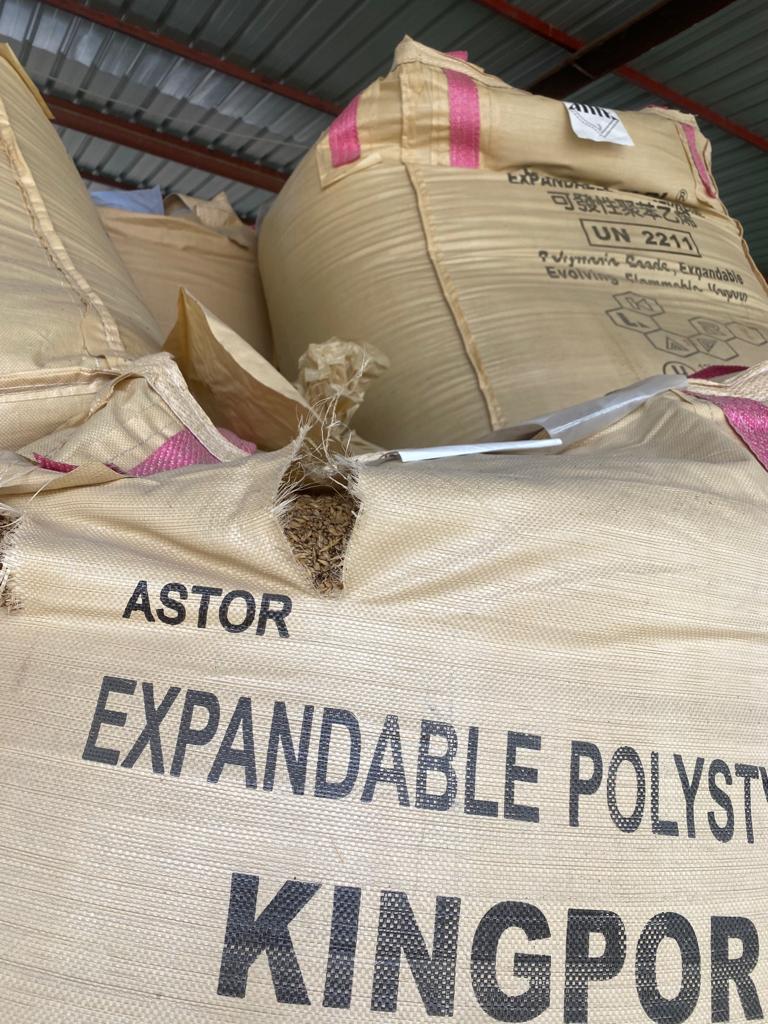
Sack of stored wheat at the home of farmer Ahmet Kaloshi
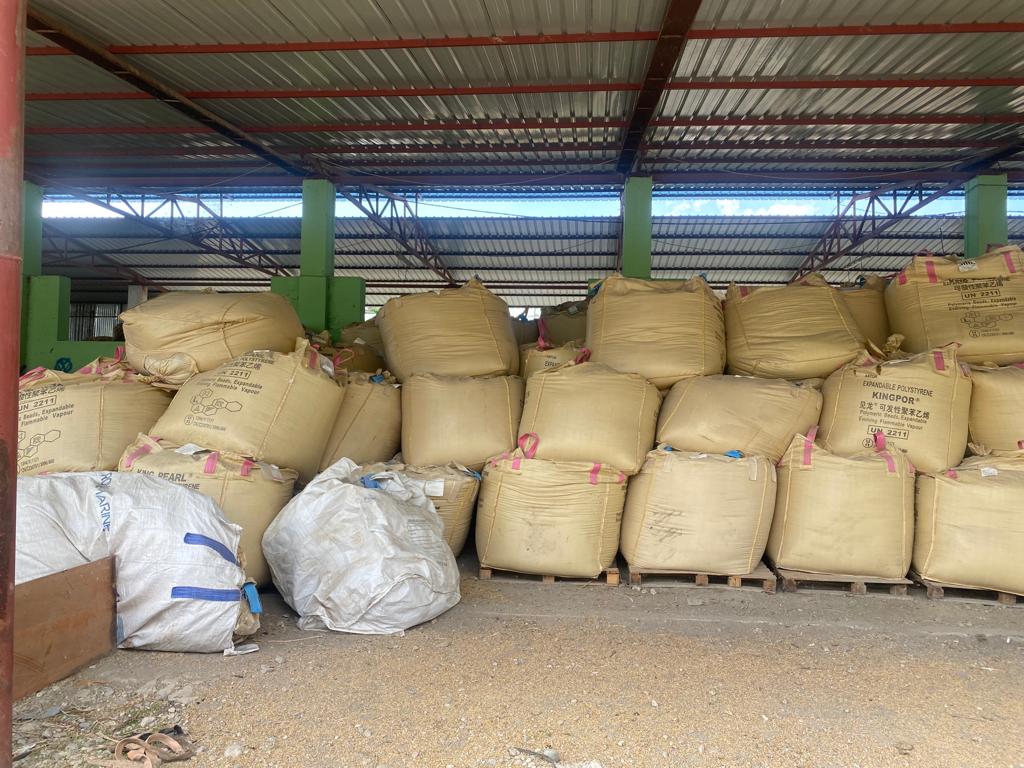
Sack of stored wheat at the home of farmer Ahmet Kaloshi
“I sold some of it, for so little Money that it was almost like giving it for free, and stored the rest at home. 25 tons of unsold wheat.”, he says, adding that large traders aren’t interested in local wheat since they’ve once again bought wheat from Ukraine.
“Amidst the wheat season, it tumbled to the earth as we anticipated buyers to come and make the purchase. However, wheat doesn’t linger; it’s a mere 10-day endeavour. Despite this, the merchants declined, and it was not about the price. Imports have been the choice for all. These wheat kernels were procured at 220,000 former lek per ton from Ukraine. Transported via ship to Durrës, they hold no intrigue for our own wheat.”, says the farmer, disappointed.
The war did not curb the wheat imports
Secure data from the Institute of Statistics reveals that last year, Serbia was the main market for wheat imports in Albania, in contrast to a year prior when Russia held the lead in imports. According to INSTAT data, the wheat purchased from Serbia by the end of 2022 amounted to over 100,000 tons, whereas the quantity of wheat bought from Russia was 75,000 tons. The conflict has halved the amount of wheat obtained from Russia, yet the import volume from Russia remains high. Third comes Ukraine. Last year, Albania received a supply of 22,000 tons of wheat from Ukraine. Compared to 2021, the quantity of wheat imported from the war-afflicted country has doubled.
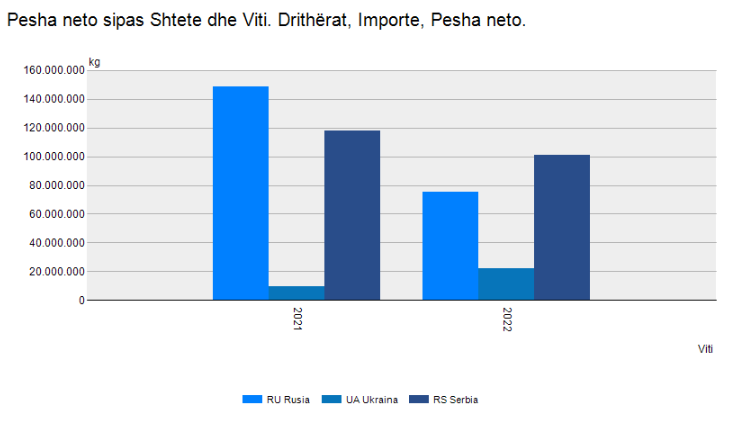
Source: INSTAT
Last year, the quantity of imported wheat totalled 241,000 tons. Although Serbia, Russia, and Ukraine hold the largest share, the uncertainty of the war directed Albanian traders toward new markets.
According to figures processed by INSTAT, Albania secured over 44,000 tons of wheat from Italy, Bulgaria, China, France, North Macedonia, Romania, Croatia, Spain, and Greece.
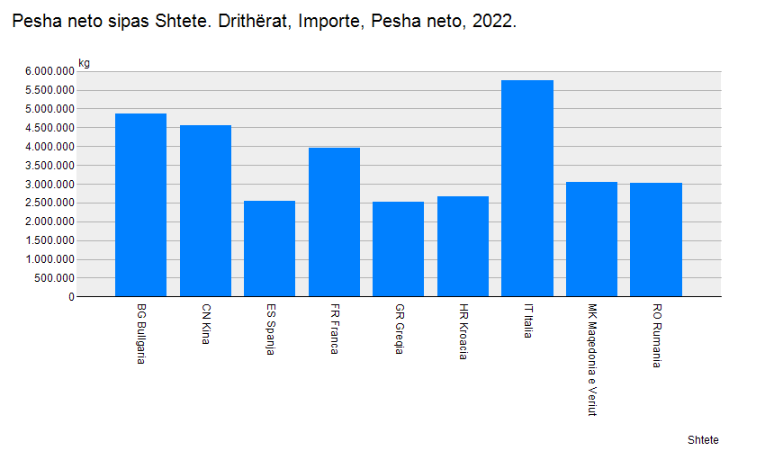
Source: INSTAT
Wheat ‘Made in Albania
In 2022, according to INSTAT data, wheat production in Albania reached 690,000 tons. Unlike the previous year, the production quantity decreased slightly.
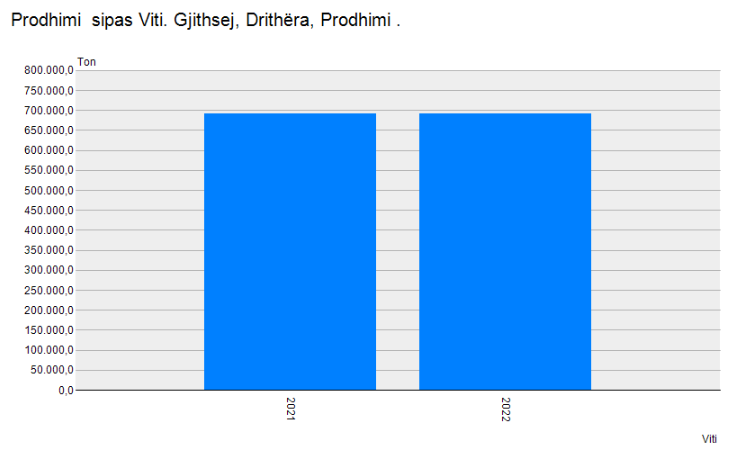
Source: INSTAT
The highest share of wheat production is held by Fier County with 171,000 tons, followed by Elbasan and Korça.
On the other hand, according to INSTAT data, the total wheat production at the end of 2022 amounts to 233,000 tons, with a slight increase compared to 2021 when wheat production reached 225,000 tons.
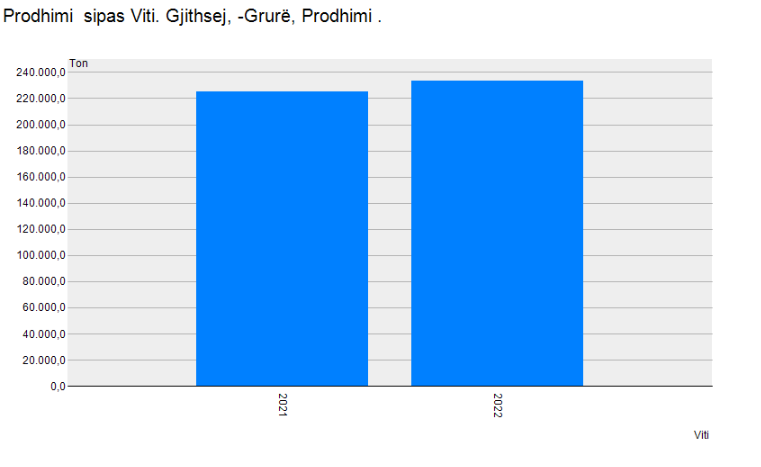
Source: INSTAT
This total production includes the quantity of wheat that enters the market, the amount used for self-consumption, and the portion utilized as animal feed.
Why does domestic wheat have a higher price than imports?
Albania continues to source wheat through imports due to the lower prices compared to domestic production.
“One of the reasons is the 0% VAT (Value Added Tax) on purchases by farmers and 20% VAT on sales. Factories are not interested in buying from farmers because they pay a 20% tax on turnover. We have also submitted a draft law to the Parliament for equalizing VAT rates, but the draft was not included in the agenda.”, says the former head of the Farmers’ Union, Eduart Sharka, adding that this draft law, developed by the Farmers’ Union with the assistance of IDN, the Helsinki Committee, and the MP of the Agrarian Party, Agron Duka, was not approved by the Albanian Parliament.
“We adopted the solution for the agriculture situation in the country from the law ‘On Agriculture and Rural Development’ in North Macedonia, but it was only voted for by the opposition and deputy Erjon Braçe from the ruling party.”, says Mr. Sharka.
The law “On Agriculture and Rural Development” in North Macedonia envisages special measures that intervene to stabilize agricultural product markets, which can be implemented when there is a disruption between market supply and demand. These measures also include state grain procurement, specifying the prices.
This was the model upon which the proposed legislative initiative in the Parliament was based.
The draft proposed the establishment of an agency under the Ministry of Agriculture, whose main objective would be to study the agricultural market, provide guidance to farmers, and publish informative materials for them.
In the proposed draft law, it was emphasized that it would be within the authority of the new Agency to also purchase agricultural products that have created surpluses, or as an activity for market stabilization.
The Agency, among other things, would be tasked with systematically and historically analysing the production volume, imports, exports, and prices.
Russia’s Blockade in the Adriatic Sea
Since the conclusion of the wheat agreement between Russia and Ukraine, attacks against merchant vessels from both sides have escalated. In July, Russia blocked the agreement by increasingly bombarding Ukrainian ports and threatening to attack cargo ships. In this situation, the price of wheat in foreign markets is witnessing an increase. And the Ministry of Agriculture in Albania states that this situation could turn in favour of farmers.
The Director General of Policies and Programs for Agriculture, Food Security, and Rural Development, Irfan Tarelli, told “Monitor” that state institutions are monitoring the situation daily regarding the trend of wheat prices in the domestic market and particularly in foreign exchanges.
Mr. Tarelli emphasized that due to Russia’s withdrawal from the Adriatic Sea agreement, wheat prices in foreign markets have shown an upward trend since July 20th, which will automatically be reflected in the domestic market as well.
However, former head of the Farmers’ Union, Eduart Sharka, is not optimistic.
“No, I don’t see any possibility for farmers to sell the remaining stock of wheat after the blockade because it has poor quality, and due to lack of investments, farmers are unable to store it properly. Therefore, traders are not interested in taking it. Wheat is an article related to national security, so government intervention was needed, as in North Macedonia.”, he emphasizes.
Under these circumstances, agricultural experts estimate that the next year, the areas sown with wheat will significantly decrease, as farmers are not finding a market.






